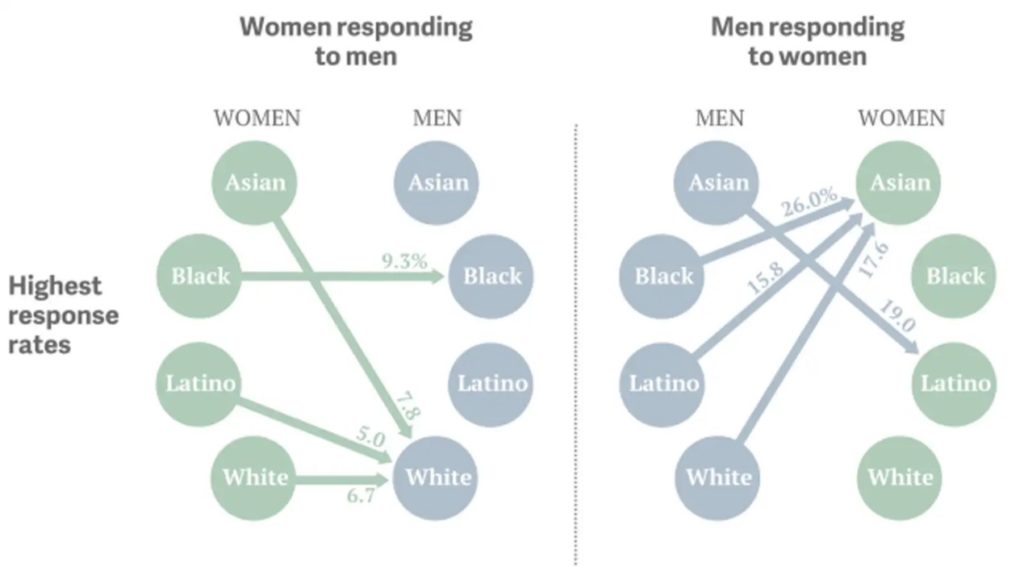Ho Ki Lo
“Hi sweetheart, you look wonderful, do you want to be my sweet baby?”
That is what I’ve been asked while walking in central London.
There are many such examples,
“Hey kitty, smile at us!”
“Do you need a daddy to discipline you?”
“I love your small, Asian body.”
Many western men seem to feel they have the right to govern the bodies and sexuality of Asian women, and believing those women are more than willing to comply because they want to please men.

This type of fetishism for East and Southeast Asian women is known as “yellow fever,” a fetish because it is believed that Asian women are hypersexual and full of exoticism while at the same time being submissive and docile. The phrase initially appeared in the opera Madama Butterfly, which depicted the romance of an American soldier and a 15-year-old Japanese girl who commits suicide to avoid facing the reality that she was abandoned. This opera is the Pandora’s Box; it inspired the concept of marrying an obedient Asian girl.
The idea has developed over hundreds of years, beginning when the enthusiasm for Eastern Asian or Chinese culture originated in the 18th and 19th centuries, the West was keen on adopting Chinese and other East Asian patterns and styles in Western art, such as Chinoiserie Porcelain and Japanese Ukiyo-e. And the stereotype of Asian women obedient has been introduced in to western.
The broad-scale history of colonization and violence from Western countries in Southeast Asian countries has also fostered the idea that Asian women are more obedient and better at serving males. During the time of the Vietnam War and the Philippine-American War, a lot of local women were raped, sexually assaulted, and even impregnated by white soldiers. The colonization of Asian women’s bodies has laid the foundations for what we see as ‘yellow fever’ today. Since then, white people began to link Asian women with sexual symbolism, such as the Page Act of 1875, banning Chinese women from entering the US because they were “cheap Chinese labour and immoral”. Even until the 21st century, many still have not realised that this kind of fetish is offensive. A lot of people don’t recognise the danger of racial depersonalization behind it, and some Asian women even find it endearing because they can use this fetish as a sure-fire tactic to get a date (proof of their charm).

Yellow fever is putting Asian women in a dangerous circumstance as they can’t tell whether their date falls for them because of who they are (e.g. personality, appearance, ability) or just because she is Asian, and he thinks she is quiet, docile, good at housework and is eager to please men. This could lead to a fatal tragedy, such as the Atlanta spa shooting case. The gunman killed six Asian women because he believes he had a sex addiction, and the spas were a “temptation that has to be eliminated”. This shows the intersection between racial fetishism and racially aggravated violence, caused by the west’s linking Asian women with sexual symbolism. People simply assumed that a spa opened and run by Asian women must have been providing a sex service!
Whether the person has projected the personality, values, and behaviour that he wants onto you makes the difference between having yellow fever and “having a type.” Is he looking for a submissive partner and thinks you are the ideal match since you are Asian? Is he assuming that you would appreciate the compliments when he is attracted to you? All those are signs of red flags, and if you see one, RUN.
References
Chang, M. (2006) “Made in the USA: Rewriting Images of the Asian Fetish,” UNDERGRADUATE HUMANITIES FORUM 2005-6, 6.
Zheng, R. (2016) “Why yellow fever isn’t flattering: A case against racial fetishes,” Journal of the American Philosophical Association, 2(3), pp. 400–419. Available at: https://doi.org/10.1017/apa.2016.25.
Richard Fausset, N.B.-B.and M.F. (2021) 8 dead in Atlanta spa shootings, with fears of Anti-Asian bias, The New York Times. The New York Times. Available at: https://www.nytimes.com/live/2021/03/17/us/shooting-atlanta-acworth (Accessed: March 20, 2023).
Stattmiller, A. (2022) ILLUSTRATION AND DESIGN. Available at: http://www.andystattmiller.com/ (Accessed: March 20, 2023).
King, R. (2013) The uncomfortable racial preferences revealed by online dating. Available at: https://qz.com/149342/the-uncomfortable-racial-preferences-revealed-by-online-dating (Accessed: March 20, 2023).
unitedstates/citation and Page, H.F. (1874) Pub. L. 43-141 (Session 2; 18 Stat. 477). Washington D.C., US: 43rd United States Congress.
